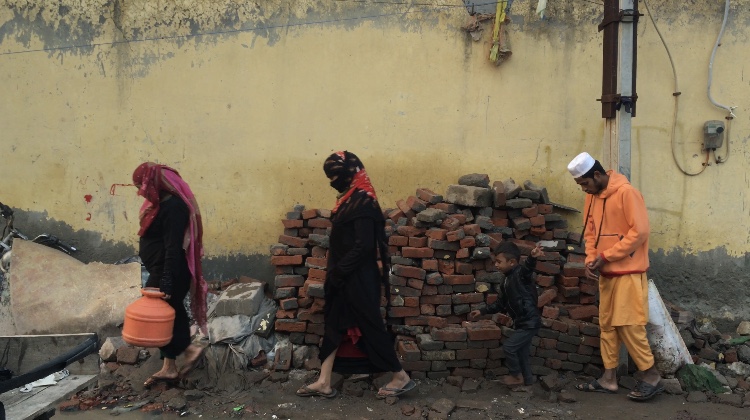Rohingya Muslims housing row: What is India's refugee policy?

A recent row over the housing and rehabilitation of Rohingya refugees in the national capital New Delhi has brought India’s refugee policy into the spotlight.
Basil Islam | TwoCircles.net
NEW DELHI — Rohingya Muslims represent the largest percentage of Muslims in Myanmar, with the majority living in the Rakhine state. Decades of systematic discrimination, statelessness and targeted violence have forced them into seeking asylum in Bangladesh, India and other neighbouring countries. In 2009, India estimated that 40,000 Rohingya live in scattered settlements in various parts of the country. The numbers have been dwindling since then.
Starting in August 2017, the Rohingya refugee crisis has been one of the world’s fastest-growing humanitarian crises, UNHCR has said.
A recent row over the Rohingya refugees status and rehabilitation in India has brought India’s refugee policy into the spotlight again. After the union minister for housing, Hardeep Singh Puri, tweeted on Thursday about providing housing and security to the refugees, AAP-ruled Delhi’s deputy chief minister Manish Sisodia responded that his government couldn’t allow Rohingyas to settle in the city. This has created a row between union and state governments since most refugees are camped in the capital city.
http://twocircles.net/2022aug22/446679.html
India’s policy towards refugees from conflict zones has been very subjective for a long time.
Does India have a refugee policy?
India is not a party to the 1951 Refugee Convention or its 1967 Protocol. However, it continues to grant asylum to many refugees from neighbouring states, mainly Tibet and Sri Lanka. According to UNHCR Global Appeal 2011 update, the Government of India deals differently with various refugee groups. Generally, it respects the principle of nonrefoulment for holders of the UN refugee agency UNHCR’s documentation. Still, the country lacks a national refugee protection framework, and the state's approach has not been the same for every refugee group.
National security and counterterrorism policies have had a more restrictive impact on asylum in the country. The Indian government’s approach to refugee issues results in different standards of protection and assistance among refugee groups. While Tibetans and Srilankans are protected and assisted by the Government, many others live in poverty, dispersed in urban areas, where they can face violence and exploitation.
What's happening to Rohingyas in India?
Since the right-wing Hindu nationalist Bharatiya Janata Party (BJP) came into power at the centre in 2014, there has been an uptick in violence against minorities, particularly Muslims. As Rohingya refugees are Muslims, they have also come under attack, verbal or otherwise. After a fire razed down a Rohingya camp in India’s national capital New Delhi in 2018, a BJP youth leader admitted to setting the shanties on fire on Twitter, saying, “Well done by our heroes… Yes, we burnt the houses of Rohingya terrorists.”
They are often labelled illegal immigrants subject to deportation by the government under the Foreigners Act 1946 and the Foreigners Order 1948.
India’s Supreme Court on April 2021 rejected a plea to stop the government from deporting some 150 Rohingya Muslims detained by police to Myanmar. Then Chief Justice Sharad Bobde added that India is not a signatory to the United Nations Convention on the Status of Refugees 1951 and that the principle of nonrefoulement is only for member states. Furthermore, he added, India's porous land borders result in a "continuous threat of an influx of illegal immigrants," which poses "serious national security ramifications.”
The Modi government says that the "Rohingyas are living in the country illegally and are a security threat." At least a dozen Rohingya have been deported since 2017, according to community leaders.
Basil Islam is an independent journalist and researcher based in South India. He tweets at @baasiie
